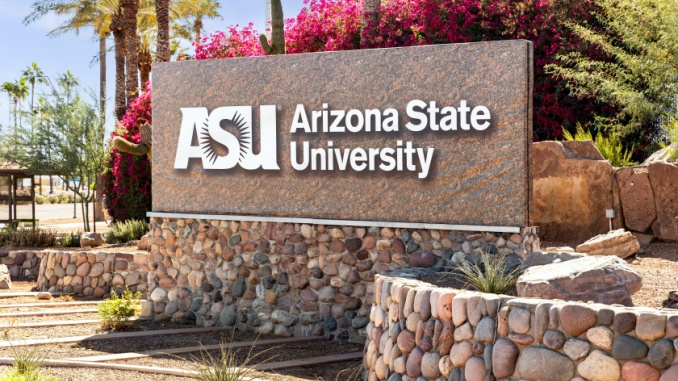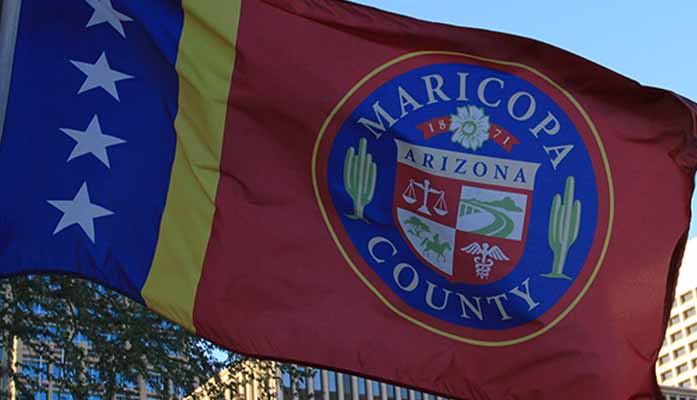
by Jonathan Eberle | Sep 30, 2025 | Education, News
By Jonathan Eberle |
Arizona is introducing a new apprenticeship program aimed at tackling the state’s ongoing teacher shortage, according to Superintendent of Public Instruction Tom Horne. The Arizona Teacher Registered Apprenticeship Program (AZ TRAP), developed in collaboration with the Arizona Office of Apprenticeship, provides aspiring educators with a pathway to certification at little to no cost. Participants gain classroom experience while earning a wage and receiving mentoring and professional development.
“There is a crisis in Arizona, and we must take strong action. We are losing more teachers than are coming into the profession,” Horne said. “If we don’t do something major, we could end up with zero teachers. Apprenticeship programs are another tool to be used alongside efforts to improve teacher pay and administrative support.”
Horne emphasized that the program is designed to increase accessibility to teacher certification and build a stronger pipeline of educators. “The Arizona Department of Education is a service-oriented agency, and this effort is part of my commitment to training quality educators for Arizona classrooms,” he said.
The program has received $1.5 million in funding from the Maricopa County Workforce Development Board to support apprentices in Maricopa County for the 2025–2026 school year.
Key features of AZ TRAP include:
- Pilot partnerships with Mesa Public Schools, Phoenix Union High School District, The Arizona Teacher Residency Program, and PLC Charter Schools, which will employ teacher apprentices and collaborate with the Department of Education.
- Hands-on experience, giving aspiring teachers thousands of hours of on-the-job learning under the guidance of mentor teachers.
- Grow Your Own Model, allowing schools to select prospective employees and integrate them into their culture early, with the goal of improving teacher retention.
The apprenticeship program represents a targeted effort to prepare educators for Arizona classrooms while addressing one of the state’s most pressing education challenges.
Jonathan Eberle is a reporter for AZ Free News. You can send him news tips using this link.

by Jonathan Eberle | Sep 29, 2025 | Economy, News
By Jonathan Eberle |
Arizona added 700 nonfarm jobs in August, a modest increase that ranked the state 31st nationally in monthly job growth, according to a new analysis by the Common Sense Institute (CSI). Nationally, the U.S. economy gained 22,000 jobs, while 18 states recorded employment losses.
On an annual basis, Arizona showed stronger momentum, adding 41,400 jobs over the past year, a 1.29% gain that placed it 15th in the nation. However, CSI noted that the state has shed 15,100 jobs since April 2025, marking the second-highest nominal job loss in the country during that period and the fifth worst relative decline at 0.46%. Arizona’s unemployment rate remained at 4.1% in August, unchanged for six straight months. Labor force participation also held steady at 61.4%, below its pre-pandemic level of 62.2%.
Manufacturing led the way in August with 1,100 new jobs, a 0.6% increase that ranked Arizona third nationwide for monthly manufacturing growth. Despite the improvement, the sector remains down 1,100 jobs compared to last year. Mining and Logging posted the strongest year-over-year growth, adding 1,500 jobs, or 10.2%. By contrast, Leisure and Hospitality lost 0.6% of its workforce last month, while the Information sector continues to lag behind with a 2.7% year-over-year decline.
Average hourly wages in Arizona rose to $34.91, up 4.1% from August 2024. Adjusted for inflation, real wages increased 2.7% over the past year—outpacing the national average of 0.7%. Still, CSI’s report highlighted longer-term challenges: since April 2020, real wages in the state have fallen 4.3%.
Overall, the report points to a mixed picture for Arizona’s labor market: modest gains in key industries and wage growth, offset by lingering job losses since the spring and participation rates that remain below pre-pandemic levels.
Jonathan Eberle is a reporter for AZ Free News. You can send him news tips using this link.

by Jonathan Eberle | Sep 28, 2025 | Education, News
By Jonathan Eberle |
Arizona State University history professor Alexander Aviña is at the center of controversy after social media posts highlighted comments he made about conservative activist Charlie Kirk and Christianity.
The account Project Constitution posted on X that Aviña had referred to Kirk as “unimportant and hateful” and called Christians “blasphemous.” The post, which quickly spread online, accused the professor of mocking faith and using his position to disparage students’ beliefs.
A second post by Stu Smith also shared the clip from the podcast interview where Aviña continued to reflect on public mourning for Kirk. He compared the response to the aftermath of September 11, saying, “This feels even weirder than right after September 11th, much more intense.”
Aviña also described students whispering in his office out of concern for saying the wrong thing and criticized what he called the “fascistic revanchist right” for using the moment to “pummel the rest of us.”
In the same interview, Aviña ridiculed Kirk’s global influence, questioning whether “Kirk cultural or political spaces” might emerge in Latin America, and mocked online tributes depicting Kirk in heaven with Jesus.
“Gringo Christians are some of the most blasphemous, sacrilegious people,” he said, adding, “It is extremely bizarre… constant whiplash.”
The comments prompted backlash from voices online, who accused Aviña of disrespecting Christianity and dismissing the legacy of one of the right’s most prominent activists. Both Project Constitution and Stu Smith called on ASU to hold Aviña accountable, with Project Constitution urging followers to “cancel him.”
Jonathan Eberle is a reporter for AZ Free News. You can send him news tips using this link.

by Jonathan Eberle | Sep 26, 2025 | Economy, News
By Jonathan Eberle |
Arizona’s housing market showed signs of cooling in the second quarter of 2025, but affordability challenges persist, according to a new analysis from the Common Sense Institute (CSI).
CSI’s Q2 Housing Affordability Report highlights a combination of falling home prices, slowing residential permitting, and a continuing housing deficit as factors shaping the state’s housing outlook.
Key findings from the report indicate that Arizona currently faces a housing shortage of 52,846 units, a 6.9% decline from 2024. Analysts say the reduction stems more from weakened buyer demand than from an increase in housing supply.
The average home price in the state remains $426,164—roughly $53,400 (14.3%) above what prices would have been if they had followed pre-pandemic trends. Despite recent price declines, households still need to earn $95,808 annually—or work 64 hours per month at the average wage—to afford a mortgage on the typical home.
The CSI report assigns Arizona a “C-” grade for housing in Q2 2025, noting continued affordability concerns and low permitting levels. Maricopa County maintained its “D” rating, while Pima County improved to a “B.” Residential permitting in Arizona is projected to approve 51,877 units this year, a 12.5% decrease from 2024 and the slowest pace since 2019. Experts note that the state needs between 60,000 and 75,000 new units annually to close the housing gap.
“Arizona’s housing market is cooling, but the relief many hoped for has not materialized,” said Zachary Milne, CSI Senior Economist and Research Analyst. “Prices are still far above pre-pandemic levels, mortgage costs remain burdensome, and new homebuilding is slowing at a time when the state already faces a significant housing deficit. Without a sustained increase in supply, affordability will remain out of reach for too many Arizonans.”
The report concludes that Arizona’s long-term housing challenges are driven by both elevated prices and insufficient construction. While the recent moderation in demand has provided some short-term relief, the underlying supply gap continues to affect affordability across the state.
Jonathan Eberle is a reporter for AZ Free News. You can send him news tips using this link.

by Jonathan Eberle | Sep 25, 2025 | Economy, News
By Jonathan Eberle |
Maricopa County has retained the highest possible credit rating. Standard & Poor’s Global Ratings affirmed its AAA rating with a stable outlook, signaling strong financial health amid broader economic challenges.
County officials say the rating reflects careful fiscal management and a solid economic foundation. According to Chairman of the Board of Supervisors Thomas Galvin, District 2, the AAA rating demonstrates that “Maricopa County is not only financially strong but fiscally responsible.”
The County operates well below its maximum property tax levy and carries no general obligation debt, a distinction rare for large counties. Officials note that these measures help reduce costs for residents while supporting strategic investments in infrastructure and public services.
The AAA rating reflects several factors, including:
- Conservative budgeting and prudent financial management.
- Healthy reserves that protect against economic uncertainty.
- A diverse local economy, with strong employment in government, education, health care, and aerospace.
- Taxpayer protection through levying nearly $270 million below the County’s maximum property tax capacity.
- Absence of general obligation debt, limiting taxpayer liabilities.
Maintaining the AAA rating also allows the County to borrow at lower interest rates, which can save millions of dollars on capital projects such as public safety facilities, technology upgrades, and infrastructure improvements. Officials say these savings benefit residents through enhanced services and lower costs.
The affirmation comes at a time when many counties nationwide face economic pressures, highlighting Maricopa County’s continued focus on long-term fiscal stability.
Jonathan Eberle is a reporter for AZ Free News. You can send him news tips using this link.





